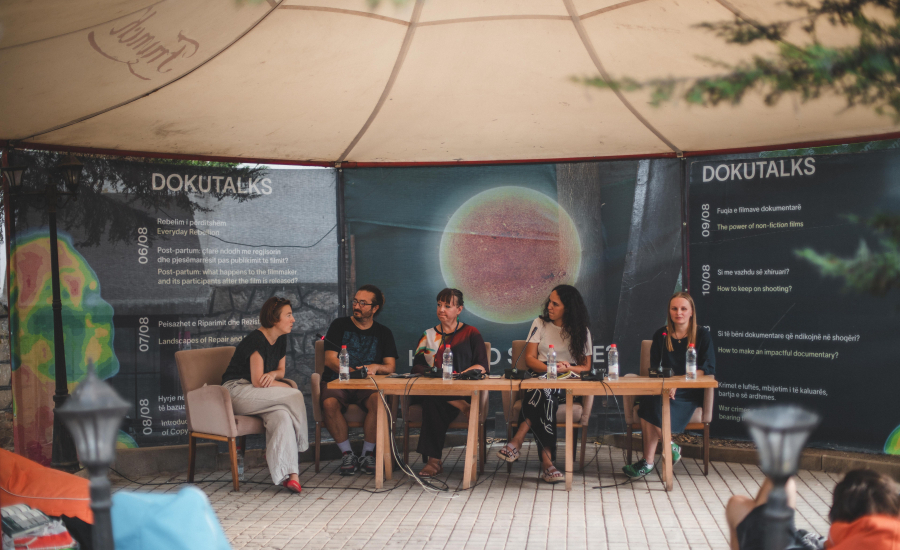11/08/2022
Reflecting on the problems facing the cinematography industry today, and especially that of documentary films, is definitely a topic that could not be left out of attention in "DokuTalks". This Wednesday afternoon in the backyard of "Shani Efendi" a panel consisting of 4 filmmakers and moderated by Dea Gjinovci brought to attention exactly the problems which often put filmmakers in front of the dilemma of whether or not to turn off the camera.
Sofia Bohdanowicz, Nataša Urban and Keti Stamo shared their experiences to better understand what happens and of course to make the attendees part of their work.
For the filmmaker from Serbia Nataša Urban, it was not easy to tell about her experience in a film where people close to her are asked about the events in the former Yugoslavia and Srebrenica.
"I always thought it would be very simple to come to this panel and talk, but now I understand that it is difficult to talk about how to survive. Actually, I have to say that the idea for the film did not come to me on purpose, but naturally something happened. A girl whom I had as a daughter passed away, so after the bad emotional state I realized that if I wanted to recover, I had to face the pain. First I started to do the work myself where the whole thing started, I started to get information and read for months and months this information about the genocide and only after reading and being informed there I started to face my family. I always knew that I always wanted to make this film very personal. Making this film broke me, I was depressed and anxious for almost a year and a half. I had to take medicine, but I realized that it has to be done because some things in Serbia are passed over in silence, when it comes to genocide and such events. The film will be shown in cinemas in Serbia in November and I don't know how it will be received there. Of course there are different points of view about which I am not very clear, but during the shooting of the film I had some unpleasant events with my friends, because as I said we don't talk about what happened in Yugoslavia, what happened in Srebrenica, so that you don't know where the people around you stand with respect."
This was just one of the views shared by just one of the panel members, prompting participants to reflect on the important but extremely difficult task of making a documentary film.
By Ana Haxhimali
Photo Credits: Elmedina Arapi


